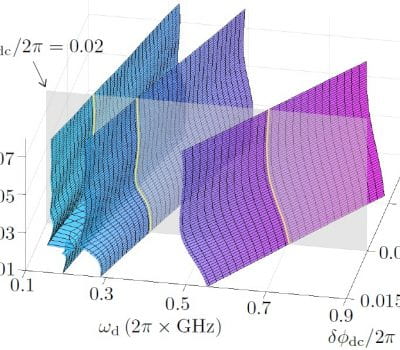
The analysis of charge noise based on the Bloch-Redfield treatment of an ensemble of dissipative two-level fluctuators g...
Read More
The analysis of charge noise based on the Bloch-Redfield treatment of an ensemble of dissipative two-level fluctuators g...
Read More
In a collaboration with the Houck Lab, we use the quasienergy structure that emerges when a fluxonium superconducting ci...
Read More
The analysis of charge noise based on the Bloch-Redfield treatment of an ensemble of dissipative two-level fluctuators g...
Read More
Protecting superconducting qubits from low-frequency noise is essential for advancing superconducting quantum computatio...
Read More
To build a universal quantum computer from fragile physical qubits, effective implementation of quantum error correction...
Read More
The heavy-fluxonium circuit is a promising building block for superconducting quantum processors due to its long relaxat...
Read More
In a new PRA paper, quantum optimal control theory is employed to realize quantum gates for two protected superconductin...
Read More
Northwestern’s Office for Research has published an article “From Qubits to Climate Change: Northwestern Qua...
Read More
The recent release of the scQubits python package has been covered in a news article published on the website of Northwe...
Read More
Superconducting qubits designed to exhibit protection from noise have recently received attention in the search for a qu...
Read More